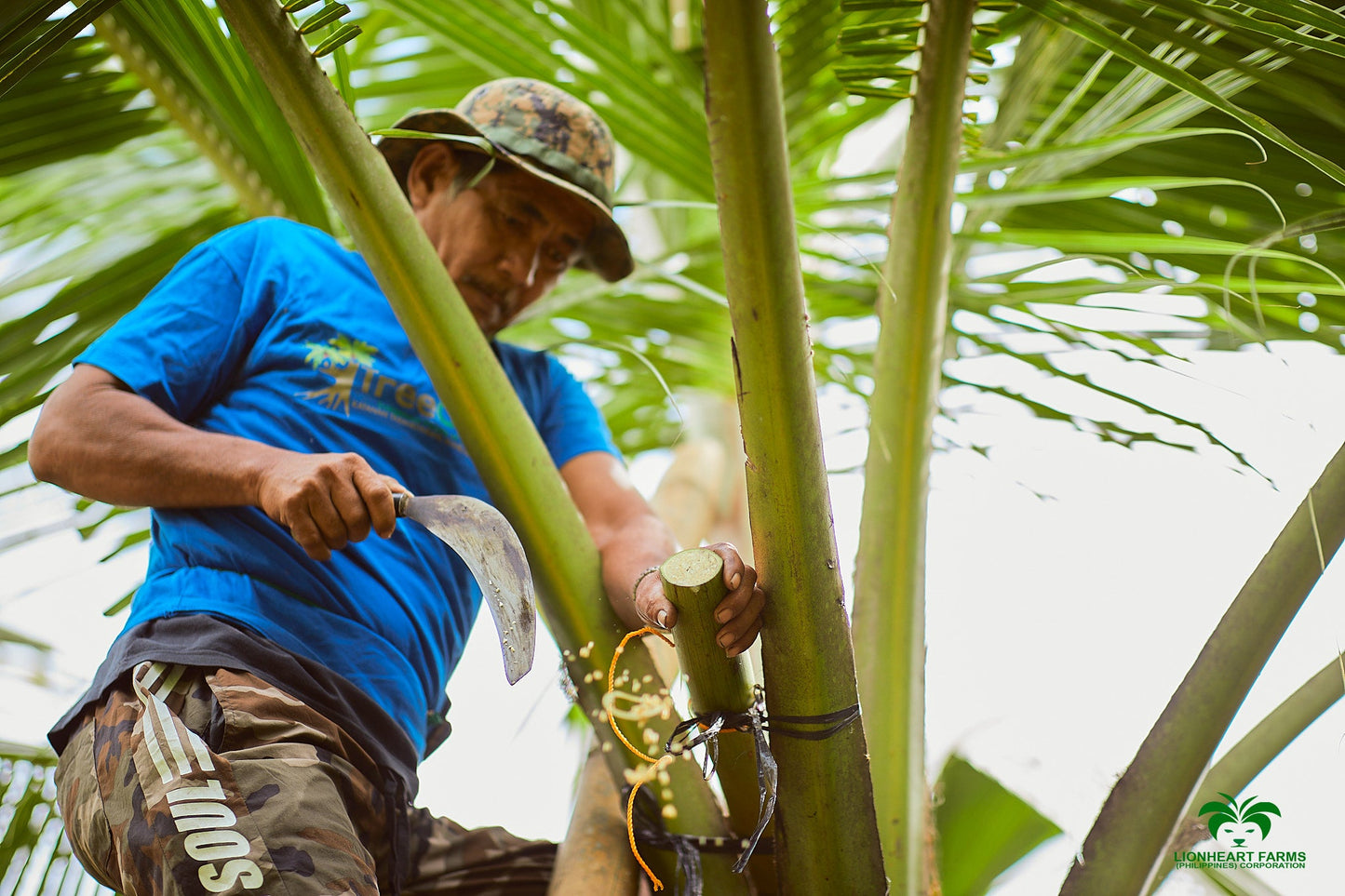
WHENEVER the topic of coconut farmers crops up, the first thing we usually hear about them is that they are part of the country's "poorest of the poor."
On the flip side, the Philippine coconut industry is a "sleeping giant" as the current average yield of coconut trees can be tripled, and the value-adding from processing remains huge.
My column about the coconut industry being a "sleeping giant" was published in The Manila Times on Aug. 11, 2022 (PH coconut industry a 'sleeping giant').
The good news is there is a program for the development of the coconut industry, with the aim of also lifting millions of poor farmers in the sector from poverty. Specifically, the Coconut Farmers and Industry Development Plan (CFIDP) approved by then-president Rodrigo Duterte through Executive Order 172 signed on June 2, 2022 paves the way for the utilization and release of the P75-billion fund provided by Republic Act 11524, or the "Coconut Farmers and Industry Fund Act."
The P75 billion will be spent over a five-year period: P10 billion each for the first and second years of the plan; P15 billion each in the third and fourth years; and P25 billion in the fifth year, including interest earned by the fund.
But then, the government, through the Department of Agriculture and the agencies involved in the CFIDP, cannot do it alone. With 69 provinces of the country's 82 provinces growing coconuts, the government will really need a helping hand from both local government units (LGUs) and the private sector.
Fortunately, there is an existing model for the convergence of efforts by an LGU and a private company to level up both the production of coconuts and value-adding activities which, in turn, benefits the small partner-farmers.
I am speaking here about the convergence effort of Lionheart Farms Philippines Corp., the Palawan LGU and smallholder coconut farmers for the development of a nucleus farming system in Rizal town of the province.
Lionheart Farms started its initiative in 2016 by planting their own coconut palms at the foot of Mount Mantalingahan in Rizal, Palawan.
Today, Lionheart exports most of its high-value products in the form of coconut flower sugar, coconut nectar/syrup and coconut aminos with raw materials sourced from its nucleus farms that include the consolidated landholdings of smallholders.
The model the agribusiness firm emulated is closest to the nucleus estate model developed by the Malaysians for the production of palm oil. Under the model, small farms are consolidated while Lionheart sets up its own plantations. That, in turn, helps the company attain economies of scale in farming and for the production of its high-value products.
Under the "big brother-small brother" partnership between Lionheart and the consolidated coconut farmers, the latter's farms are leased to the company and the farmers receive a rental. Also, the members of the farmer-beneficiaries are hired as workers in the various stages of farming and value-adding process.
Lionheart claims that its farmer-beneficiaries now earn 60-percent higher income per hectare, and I believe the potential to further increase their earnings can be realized in the next years to come.
From the beginning of the initiative, Lionheart Farms set the overall objective to deliver a significant improvement to the income levels of coconut farmers facilitated by the generation of stable jobs. This is a shift from the old scenario or before Lionheart kicked off its project where small-scale farms operated on their own.
While Lionheart Farms can be viewed as a typical corporation (because it is registered with the Securities and Exchange Commission), I would rather consider it a social enterprise, and its founder and chief executive officer, Christian Moeller, a social entrepreneur.
And the governor of Palawan at the time the company kicked off and ramped up its project, Jose Alvarez, should be lauded for facilitating the initiative and championing the cause of smallholder coconut farmers in Rizal town.
According to the company, the Palawan Council for Sustainable Development completed a United Nations Sustainable Assessment for Food and Agriculture that gave the Lionheart's project a score of 4.79 out of 5.
I believe that any big agro-industrial company that has a reach in the international market can emulate what Lionheart did in Palawan, or even do better.
What is also laudable about Lionheart is it is aiming to develop new markets and new products at an industrial scale, and attract investment and technology partners to make its operations sustainable and beneficial to its smallholder partners.
Among the products the company is studying are biofuel from the coconut husk or shell for use by industrial machines, coconut fiber for use as soil stabilizer and cocopeat as fertilizer and a high-quality geotextile.
All told, Lionheart has provided a viable model for convergence between an LGU, a major agro-industrial firm, and smallholder farmers that should be studied and emulated by the government under the CFIDP.
Since coconut farmers are still among the poorest of the poor in the country, all viable strategies and frameworks to lift them out of poverty be employed.
And the model of Lionheart will be scaled up under the Kapatid Angat Lahat Agri Program (Kalap), a project of Go Negosyo led by Jose Maria "Joey" Concepcion 3rd with the private sector, local government units and national government agencies concerned with strong support of President Ferdinand "Bongbong" Marcos Jr.
Now is the time to awaken the sleeping giant of our agriculture sector!
This article was written by William Dar, former Philippine Agriculture Secretary.
Originally published at The Manila Times on January 26, 2023.




